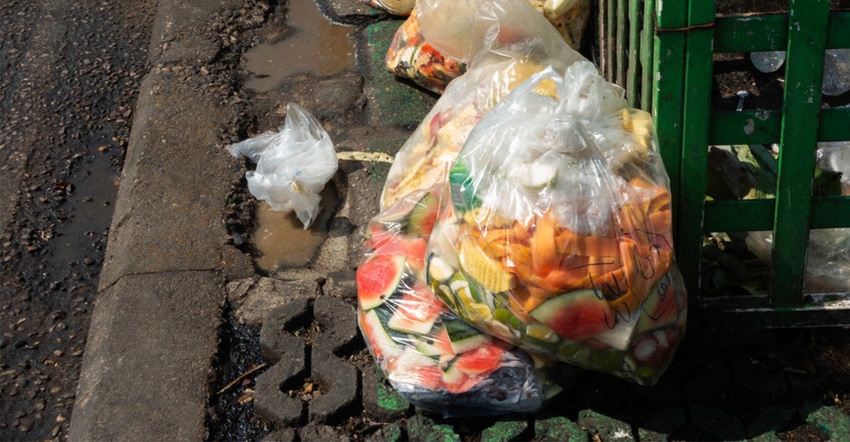December 21, 2021

Today, The Harvard Law School Food Law and Policy Clinic (FLPC) and The Global FoodBanking Network (GFN) published a new issue brief highlighting laws and policies from countries around the world that support greater food donation by providing liability protections. Promoting Food Donation: Liability Protection Law and Policy shares best practices designed to support food donation, reduce food waste, address hunger, and decrease greenhouse gas (GHG) emissions.
More than one-third—or 1.3 billion tons—of food is lost or wasted annually while up to 811 million people were hungry last year. Lost or wasted food has a massive carbon footprint, using roughly 28% of agricultural land and accounting for 8% of global GHG emissions. Food donation offers a solution by redirecting safe, surplus food to those who need it most.
However, many food donors do not donate safe, surplus food out of fear that they will incur legal liability after donation. Too often, this leads to wholesome safe food being discarded unnecessarily, when instead that surplus could provide critical food access to many individuals. The new issue brief, produced through The Global Food Donation Policy Atlas, was developed to help global leaders use policies to address these liability concerns to assure donors will not be found liable if donated food is wholesome and meets food safety requirements. The brief draws on challenges and best practices from around the world and makes recommendations to achieve three key goals:
To ease concerns about liability when a donor meets all requirements in the donation of food, including food safety requirements;
To raise awareness about liability protections available to food donors and food recovery organizations; and
To encourage innovative food recovery models and increase the amount of food available for food donation.
“Many countries do not provide liability protections or their policies are unclear, so food donors often dispose of safe, edible, surplus food instead of redirecting it to those in need,” said Emily Broad Leib, clinical professor of law and faculty director of the Food Law and Policy Clinic at Harvard Law School. “Our recommendations aim to address this missed opportunity by providing global examples to support comprehensive liability protections for donors, encouraging food donation, and limiting the economic, social, and environmental costs of food waste.”
“Hunger and food insecurity are on the rise, with an estimated 768 million people now facing hunger while at the same time nearly 30% of food produced is lost or wasted," said Douglas O’Brien, GFN’s vice president of programs. “Food banks bridge these global challenges by recovering and redirecting safe, wholesome, surplus food, to people in our communities who are food insecure and need this support. Much more food could be recovered for hunger relief if donors were confident that when they donate safe and wholesome food that they do not incur additional legal risk. These recommendations to establish and strengthen liability protections allow food donors and food recovery organizations to collaborate with confidence, ultimately protecting people in need of food access, our communities, our food systems, and our planet.”
The issue brief elaborates on solutions to address the three goals above by offering case studies and best practices from around the world. The brief is part of The Global Food Donation Policy Atlas co-produced by the Harvard Law School Food Law and Policy Clinic and The Global FoodBanking Network. The Atlas promotes strong food donation policies as global solutions to hunger and food loss and waste, analyzes and compares national laws, and offers tailored policy recommendations to clarify and optimize food donation.
###
The Harvard Law School Food Law and Policy Clinic
Since 2010, the Harvard Law School Food Law and Policy Clinic (FLPC) has served partner organizations and communities by providing guidance on cutting-edge food system issues while engaging and educating law students in the practice of food law and policy. FLPC is committed to advancing a cross-sector, multidisciplinary, and inclusive approach to its work, building partnerships with academic institutions, government agencies, nonprofit organizations, private-sector actors, and civil society with expertise in public health, the environment, and the economy. FLPC’s work focuses on increasing access to healthy foods, supporting sustainable production and regional food systems, promoting community-led food system change, and reducing waste of healthy, wholesome food.
The Global FoodBanking Network
The Global FoodBanking Network supports community-driven solutions to alleviate hunger in more than 40 countries. While millions struggle to access enough safe and nutritious food, nearly a third of all food produced is lost or wasted. GFN is changing that. GFN believes food banks directed by local leaders are key to achieving Zero Hunger and building resilient food systems. For more information, visit foodbanking.org.
You May Also Like


